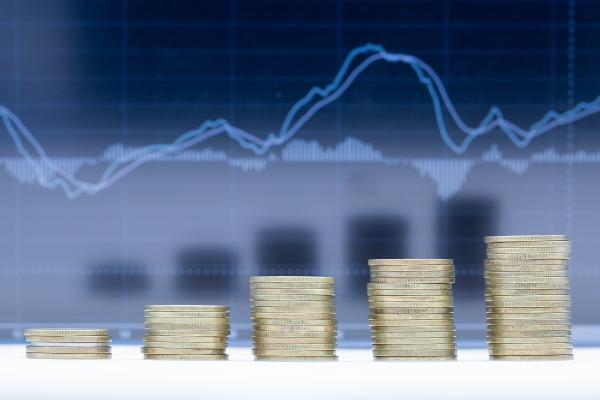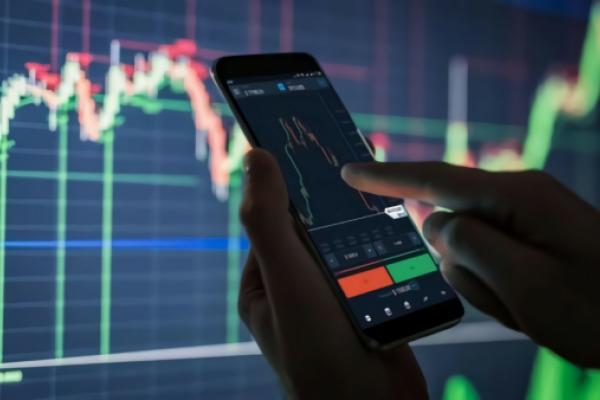CBN raises key interest rate to all-time high to fight inflation
The Central Bank of Nigeria on Tuesday raised its key lending rate by 1.5% to 15.50%, its highest level since 2006 when the rate was introduced, as part of a campaign aggressive policy aimed at controlling inflation and easing pressure on the naira.
Inflation rose in August to 20.52% from 19.64% the previous month, the highest in 17 years. The naira weakened to 720 naira to the US dollar on the parallel market on Monday, leaving the gap between the black market and the official market at over 65%, the highest in six years.
The central bank hopes the rate hike will reduce the money supply in the economy and curb inflation, but analysts say the move also risks slowing economic growth. A higher interest rate will increase the cost of borrowing for businesses and can make goods and services even more expensive.
“We have raised rates by 250 basis points at the last two meetings, but inflation has risen again. This means that our own inflation is not closely linked to interest rates and could fall in its own right. time," Tope Fasua, an economist, was quoted by the News Agency of Nigeria as saying ahead of Tuesday's increase.
Mr. Fasua said another rate hike would only punish local industries that borrow locally and struggle to reach previous production levels after Covid-19.
“Their margins are always so high, so the committee and the CBN have to be careful not to raise rates to infinity,” he said.
Tuesday's decision by the CBN's Monetary Policy Committee (MPC) was the third consecutive time the bank has raised its interest rate. The bank has, this year alone, raised the benchmark rate by a cumulative four percentage points. CBN Governor Godwin Emefiele said the decision was made unanimously by MPC members.
"The MPC noted that a tight policy would help consolidate the impact of the last two policy rate hikes, which is already reflected in the slowing rate of money supply growth," Emefiele said. announcing the rise in Abuja.< /p> ALSO READ: EDITORIAL: On the fiscal cliff: CBN and Nigeria's external reserves
"He also believed that an aggressive rate hike would slow capital outflows and likely attract capital inflows and appreciate the naira currency." He did not rule out further hikes.

Tuesday's big jump surprised analysts, some of whom had predicted a smaller 0.5 percentage point increase.
Umhe Uwaleke, professor of capital markets at Nasarawa State University, said he would have advised the CBN to maintain the previous rate of 14%.
"That's because the main drivers of inflation in Nigeria today are cost-push rather than demand-side," he said as quoted by NAN. "Furthermore, policy tightening may not really contain inflationary pressures which stem more from the high cost of energy and the negative impact of insecurity on food production. Any rate hikes at this time will hurt production growth due to the higher cost of loans to SMEs."
In another restrictive measure, the CBN increased reserve requirements for banks to store excess liquidity by increasing the cash reserve ratio to 32.5% from 27.5%. Emefiele said banks that do not increase their reserves would be barred from the foreign exchange market from Friday.
Support the integrity and credibility journalism of PREMIUM TIMES Good journalism is very expensive. Yet only good journalism can guarantee the possibility of a good society, an accountable democracy and a transparent government. For free and continued access to the best investigative journalism in the country, we ask that you consider providing modest support to this noble endeavour. By contributing to PREMIUM TIMES, you help sustain relevant journalism and keep it free and accessible to everyone.Donate
[onboard...
The Central Bank of Nigeria on Tuesday raised its key lending rate by 1.5% to 15.50%, its highest level since 2006 when the rate was introduced, as part of a campaign aggressive policy aimed at controlling inflation and easing pressure on the naira.
Inflation rose in August to 20.52% from 19.64% the previous month, the highest in 17 years. The naira weakened to 720 naira to the US dollar on the parallel market on Monday, leaving the gap between the black market and the official market at over 65%, the highest in six years.
The central bank hopes the rate hike will reduce the money supply in the economy and curb inflation, but analysts say the move also risks slowing economic growth. A higher interest rate will increase the cost of borrowing for businesses and can make goods and services even more expensive.
“We have raised rates by 250 basis points at the last two meetings, but inflation has risen again. This means that our own inflation is not closely linked to interest rates and could fall in its own right. time," Tope Fasua, an economist, was quoted by the News Agency of Nigeria as saying ahead of Tuesday's increase.
Mr. Fasua said another rate hike would only punish local industries that borrow locally and struggle to reach previous production levels after Covid-19.
“Their margins are always so high, so the committee and the CBN have to be careful not to raise rates to infinity,” he said.
Tuesday's decision by the CBN's Monetary Policy Committee (MPC) was the third consecutive time the bank has raised its interest rate. The bank has, this year alone, raised the benchmark rate by a cumulative four percentage points. CBN Governor Godwin Emefiele said the decision was made unanimously by MPC members.
"The MPC noted that a tight policy would help consolidate the impact of the last two policy rate hikes, which is already reflected in the slowing rate of money supply growth," Emefiele said. announcing the rise in Abuja.< /p> ALSO READ: EDITORIAL: On the fiscal cliff: CBN and Nigeria's external reserves
"He also believed that an aggressive rate hike would slow capital outflows and likely attract capital inflows and appreciate the naira currency." He did not rule out further hikes.

Tuesday's big jump surprised analysts, some of whom had predicted a smaller 0.5 percentage point increase.
Umhe Uwaleke, professor of capital markets at Nasarawa State University, said he would have advised the CBN to maintain the previous rate of 14%.
"That's because the main drivers of inflation in Nigeria today are cost-push rather than demand-side," he said as quoted by NAN. "Furthermore, policy tightening may not really contain inflationary pressures which stem more from the high cost of energy and the negative impact of insecurity on food production. Any rate hikes at this time will hurt production growth due to the higher cost of loans to SMEs."
In another restrictive measure, the CBN increased reserve requirements for banks to store excess liquidity by increasing the cash reserve ratio to 32.5% from 27.5%. Emefiele said banks that do not increase their reserves would be barred from the foreign exchange market from Friday.
Support the integrity and credibility journalism of PREMIUM TIMES Good journalism is very expensive. Yet only good journalism can guarantee the possibility of a good society, an accountable democracy and a transparent government. For free and continued access to the best investigative journalism in the country, we ask that you consider providing modest support to this noble endeavour. By contributing to PREMIUM TIMES, you help sustain relevant journalism and keep it free and accessible to everyone.Donate
[onboard...What's Your Reaction?






















